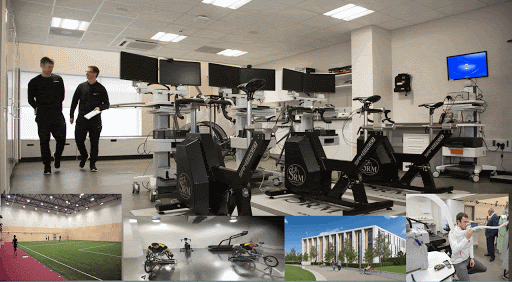Respiratory Assessment
Manchester's Premier Respiratory Clinic
Respiratory Assessment
At Respiratory Medical, through our affiliated clinical sites and expert teams, we are only one of a few current private respiratory services that has the ability to undertake comprehensive respiratory investigations for our patients to provide an accurate diagnosis, assess outcome of treatments and optimise individual well being.
Our Lung Investigations start with a consultation by the respiratory specialist clinical team this allows the identification of the likely disease causing your symptoms, the triggers causing acute ‘flare ups’ and also the progression of the illness.
Our Lung Investigation services include:


Lung Phyisology (lung function tests)
Allows the understanding of the function and inflammation process within the lung. Lung function tests can aid understanding the nature of the illness, limitations an individual has and allows planning of care.
The tests we provide include:
Full Pulmonary function testing: These are blowing test which assess flow of air through the tubes of the lungs, the volume of the lung and ability of oxygen to transfer from the air through the lung tissue in to the bloodstream. Spirometry is a part of this test suite which can be provide as a stand alone to test to measure flow of air through the airways or as Parton the full pulmonary function test.
Exhaled Nitric Oxide (FeNO) is again blowing test taking a few minutes to undertake with near instantaneous results, the test demonstrates the severity of inflammation in certain types of asthma.
Challenge testing: These are a variety of lung function tests, where an individual is exposed to irritants in a controlled low dose manner to bring on mild asthma to objectively assess the sensitivity of the lung and hence the inflammatory process causing the asthma. Common tests include Mannitol challenge testing and EVH (Eucapnic Voluntary Hyperventilation) test
Cardiopulmonary exercise testing (CPET): is used when the cause of the breathlessness is difficult to diagnose on initially investigation. CPET allows assessment of respiratory, cardiac and muscle during exercise to understand why breathlessness has occurred in an individual when initial tests are not diagnostic
Field exercise testing: These tests support assessment of an individuals breathlessness symptoms on exposure to ‘real world’ activities with pre and post exercise lung tests. As part of our service we have access to the largest environmental chamber in Europe where we can replicate environmental temperature, humidity and altitude whilst exercise is undertaken to support diagnosis of the cause of breathing difficulties.
CPET with direct upper airway analysis via laryngoscopy: This is a gold standard test for the diagnosis of exercise induced laryngeal Obstruction (e-ilo). During this investigation a CPET is undertaken with a fibrotic scope inserted via the nostril to view the upper airways during exercise. In patients with e-ilo the upper airway closes down (adducts) on the in-breath making it hard to breathe and causing an inspiratory wheeze (stridor), in its severest form individuals can drop their oxygen levels and even blackout. Using CPET-laryngoscopy to diagnose this abnormality helps develop the correct treatment plan to resolve the issue.
Radiology
Plain Chest X-ray (CXR): this is a standard for most new patient reviews it helps diagnose abnormalities and gives an idea of potential lung diseases like COPD and lung fibrosis etc. CXRs have limitations and do not allow fine architectural review of the lung tissue.
CT Scan of the Lung: There are different types of Chest CT scans, all of which we can provide. The 2 most frequent scans are: High resolution scans allow to define the structure of the lungs very clearly and support defining lung tissue based disease; CT pulmonary angiograms are used to review the blood vessels of the lung as well as the lung tissue they are extremely useful to support vascular abnormalities causing symptoms of breathlessness.
Lung Ultrasound: this is often used to review the presence of fluid within the pleural space (lining of the lung with chest wall), function of the diaphragm which is essential to support the work of breathing.
Blood Tests
Blood tests are essential part of the analysis to support diagnosis, monitor treatment outcome and support surveillance of illnesses. Some of the less common blood investigations are aimed at supporting diagnosis of inflammatory conditions that can affect the lung such as autoimmune disorders.

